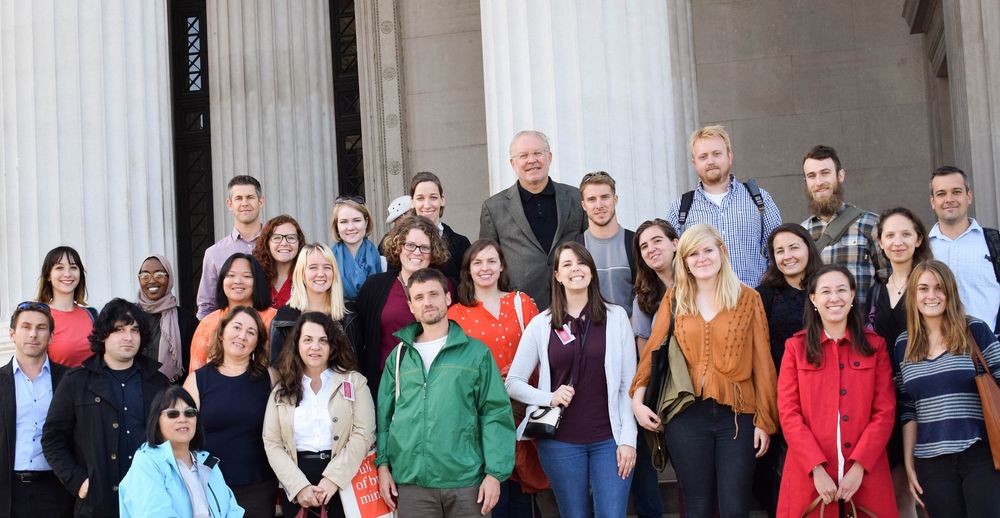Dear Alumni, Friends, and Associates of the Austrian-American Fulbright Program,
We are at a critical juncture in the history of the Fulbright Program that calls for action.
A -47% cut for Fulbright
The Administration’s budget proposal for fiscal year 2018 that came out on May 23 is based on a $54 billion increase in defense spending that is to be offset by a $54 billion decrease in non-defense programs. This proposed budget entails cuts over 30% to the State Department including a 47% cut to the Fulbright Program. A unilateral cut of these dimensions to the Fulbright Program – from $236 million to $148 million – would have devastating consequences. Furthermore, it would shake the confidence of the long-standing partner governments with binational commissions that contribute over $100 million annually to the program.
This is not the first time the Fulbright Program has been confronted with a cut in federal funding. The most recent one was in 2014 when the Obama administration proposed a 13% cut. Three years ago Fulbright Austria was instrumental in articulating an initiative that led to the establishment of a grass roots alumni initiative – www.SaveFulbright.org – which kick-started a global advocacy campaign that ultimately led to the Congressional restoration of Fulbright funding. This was an impressive example of civic engagement and the democratic process at work. Now, the time to save the Fulbright Program has come again. We need your support!
Advocate!
Congressional committees in the House and the Senate are currently working on drafting the federal budget for the 2018 fiscal year. They ultimately have the authority to determine the funding levels for all programs in the federal budget and can restore funding for the Fulbright Program (as they have done in the past).
The Fulbright Association in Washington, D.C., has established an on-line advocacy portal “#Stand for Fulbright” to help U.S. citizens weigh in with their Congressional representatives by signing a petition and writing letters: an initiative which already has drawn the attention of the Washington Post. Signing the petition is easy. More importantly, the platform has an easy-to-use tool for identifying and writing to your representatives in Congress, too, so make your voice heard!
Writing your representatives has by far the most impact. (You can consult the form letter template here.) The letter-writing tool also allows you to personalize your message, and personal messages have more impact. Mention how and when you participated in the Austrian-American Fulbright Program; how it has impacted upon your life using tangible examples or specific outcomes; and keep it brief and constructive.
Share your Fulbright Story
Effective advocacy depends upon compelling narratives and effective storytelling. Therefore, I also want to take this opportunity to ask you to participate in the Fulbright Austria Storytelling Project, which was conceived to document the enormously constructive personal and professional impact the Fulbright Program has made on your life and the lives of others. Take a look at “<link fulbright-forever/>Fulbright Forever</link>” on our website and share your own story!
Fulbright Austria Forever
I also want to encourage all friends, associates, and alumni of Fulbright Austria programs to <link sign-up-for-fulbright-austria-newsletter/>subscribe to our mailing list</link> and update your contact information using this form, to make certain we have your most recent contact information on file. Please like Fulbright Austria on Facebook and follow us on Twitter to receive news and updates.
The next Fulbright Austria Newsletter will be coming out in July; stay tuned for more information about how you can help sustain and support Fulbright Austria in the future.
Thank you for your time and support. #StandForFulbright!
Best regards,
Dr. Lonnie R. Johnson
A letter from the Executive Director: Stand for Fulbright
14 Juni 2017Dear Alumni, Friends, and Associates of the Austrian-American Fulbright Program,
We are at a critical juncture in the history of the Fulbright Program that calls for action. The Administration’s budget proposal for fiscal year 2018 that came out on May 23 is based on a $54 billion increase in defense spending that is to be offset by a $54 billion decrease in non-defense programs. This proposed budget entails cuts over 30% to the State Department including a 47% cut to the Fulbright Program. A unilateral cut of these dimensions to the Fulbright Program – from $236 million to $148 million – would have devastating consequences. Furthermore, it would shake the confidence of the long-standing partner governments with binational commissions that contribute over $100 million annually to the program.
 Some of the US Fulbright Students and Scholars at Fulbright Austria's September 2016 orientation.
Photo by Fulbright Austria Media Intern Anastasia Popova.
Some of the US Fulbright Students and Scholars at Fulbright Austria's September 2016 orientation.
Photo by Fulbright Austria Media Intern Anastasia Popova.